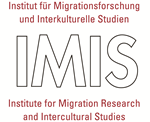| Projektart |
Promotion |
| Finanzierung |
|
| Themen |
- Flüchtlingspolitik
- Gewaltmigration
|
| Disziplinen |
|
| Laufzeit |
09/2008 ‒ 06/2014 |
| Geographischer Fokus |
-
Deutschland
-
Vereinigtes Königreich
|
| Institutionen |
|
| Beteiligte Personen |
|
Kurzbeschreibung
(nicht vorhanden)
Abstract
The dissertation investigates trends in the formulation and implementation of migrant return policies in the United Kingdom and Germany between the early 1970s and 2012, and investigates the factors and mechanisms underlying the observed changes over time. In a first step, my analysis brings to light two contravening trajectories: While over time, return-related legislation has become more inclusive, in that non-citizens' access to regularization and permanent residence has become easier in both countries under investigation, the implementation of migrant return has become more restrictive, in that a greater share of unwanted non-citizens is returned. In a second step, I show that while individual instances of restrictive return implementation are triggered by domestic electoral pressure, the overall restrictive trend in migrant return implementation that I observe constitutes the outcome of a long-term process of depoliticization and institutionalization. Depoliticization strategies serve to counteract the normatively charged nature of migrant return and remove related questions from public contestation. Processes of institutionalization, on the other hand, create administrative and operational capacities dedicated to migrant return, and therefore facilitate return implementation. Both processes originate at the domestic level. However, I show that international actors involved in the governance of migration have made important contributions on both counts: While the depoliticization of migrant return, i.e., its reframing from a normative to a primarily technical challenge, has taken place primarily in the domestic context, international actors have facilitated this shift through the provision of alternatives to outright coercion that help to remove the topic from the political sphere. The institutionalization of return practices, i.e., the building up of permanent (rather than ad hoc) administrative and operational structures dedicated to migrant return, on the other hand, crucially depends on a continuous demand for return-related services. While in the domestic context, this demand depends on the political dynamics of the day, international actors have over the past two decades catered to multiple domestic contexts and have therefore experienced a constant demand for their return-related services. Consequently, they have become a key site of return-specific capacity building. The possibility to draw on these international resources in turn enhances domestic authorities' ability to step up the efficiency of return implementation if and when called for by their electorate.









